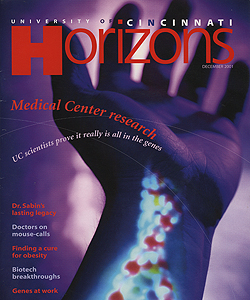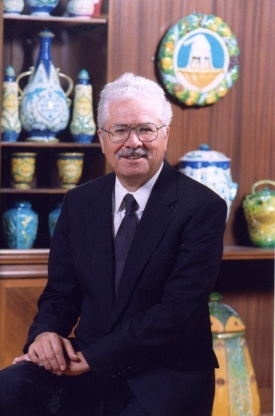by Deborah Rieselman
The country's aging population longs for a wonder drug, some simple remedy for every ache and pain. The result is a pill-popping society that spent $132 billion on 3 billion prescriptions in 2000 -- a 55 percent increase over seven years earlier, according to the U.S. Department of Commerce.
Yet a well-stocked medicine cabinet almost needs its own manager these days, especially considering the Consumer Health Information Corp. found that 50 percent of prescription drugs are taken incorrectly and that complications from drug errors equal or exceed the amount of money that society invested in purchasing them to begin with. We easily forget that even miracle cures can be deadly if taken improperly.
No one knows that better than your pharmacist. This is the individual with an ever-expanding job description, from "juggler," who checks drug interactions among a dozen medicines that four different doctors could be prescribing for the same patient, to "insurance adjuster," who spends up to 20 percent of the work day handling canceled coverage, outdated prescription-card numbers and policies that reimburse for one medication but not another.
Of course, this same individual continues to maintain responsibility for clearly deciphering physicians' notorious handwriting and typing dosage directions for an average of 23,000 prescriptions a year. While that is a 32 percent increase in scripts per pharmacist since 1992 (according to the U.S. Department of Health and Human Services), today's pharmacists also have to make time to counsel patients in possible side effects of each drug.
Considering how much control that person holds over your health and financial well-being, wouldn't you feel better if he or she were a full-fledged doctor? We thought so.
Welcome to the University of Cincinnati's new PharmD program. Beginning in the fall of 2000, the College of Pharmacy implemented a six-year Doctor of Pharmacy program to replace the former five-year master's degree program, which had replaced a four-year bachelor's degree program in the 1960s. Although a master's component is still available for researchers and academicians who want to add pharmacy to their current list of degrees, traditional pharmacists coming out of UC will earn doctorates.
It's a giant step from the mortar-and-pestle days of making drugs from willow bark and poppies when the UC College of Pharmacy was founded as the Cincinnati College of Pharmacy in 1850. It's even a sizable leap from the '60s, when alumna Dorothy Smith, PharmD '72, began her career as a pharmacist with strict instructions to never counsel a patient.
"Prescriptions were written in Latin so patients couldn't understand them," says the woman now internationally renowned for patient education. "And we were instructed to never answer a question. If a patient asked about a prescription, we were supposed to refer them to their doctor."
"Pharmacy has moved from a ‘count and pour, lick and stick' profession that has been very product oriented to a profession that puts patients and their quality of life at the center," says Robert E. Lee, associate dean at the college. Dean Daniel Acosta concurs, "Today, pharmacists are dispensing information, as well as medication."
Adding the extra year has created a greater focus on clinical experience. Students spend an entire academic year doing nine one-month rotations, instead of the previous four, at a variety of settings, including hospitals, nursing homes, retail pharmacies, industrial sites, community-service clinics and even mail-order pharmacies.

 Past Issues
Past Issues
